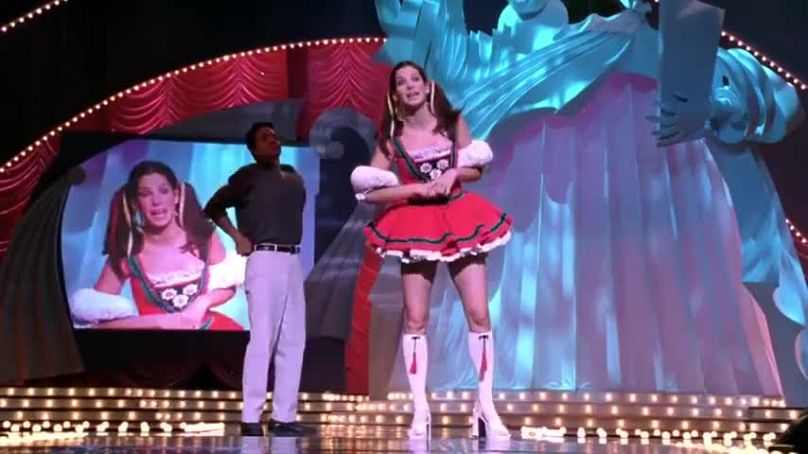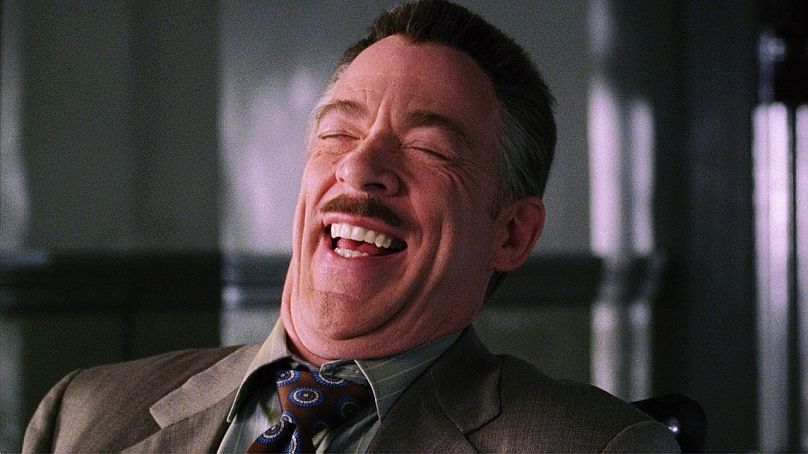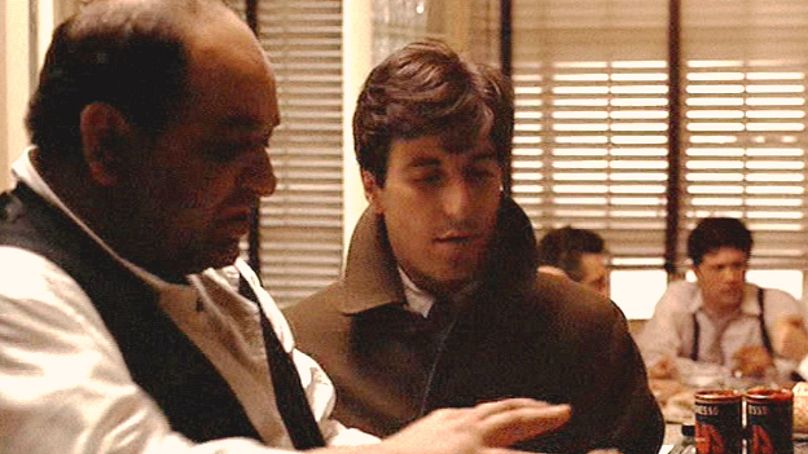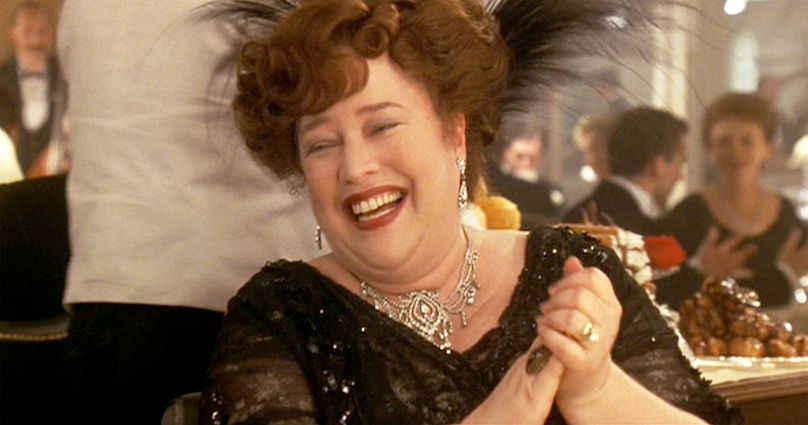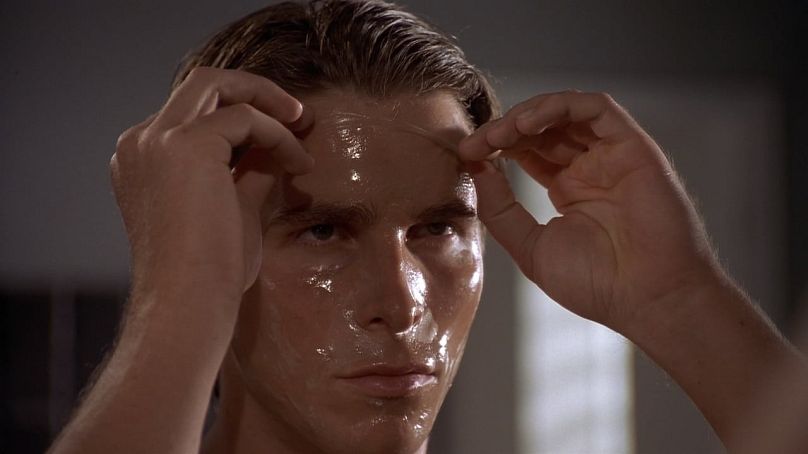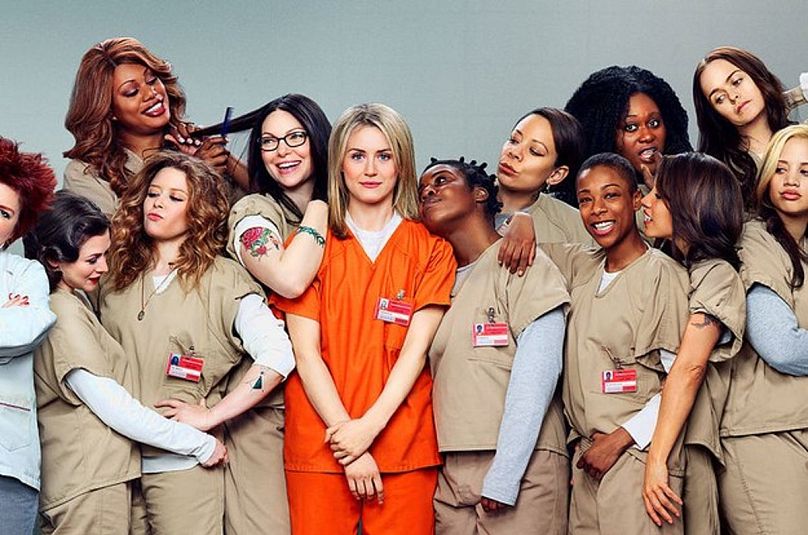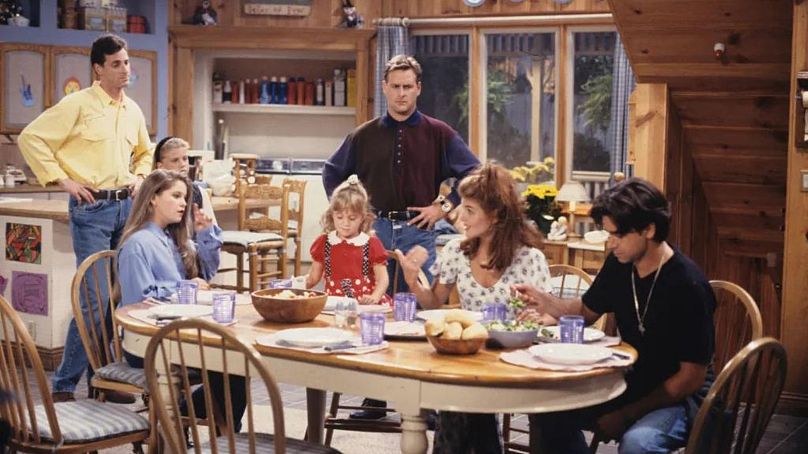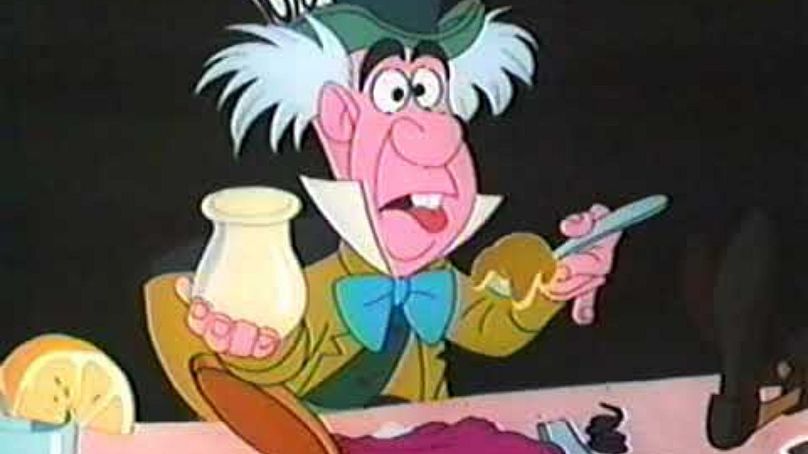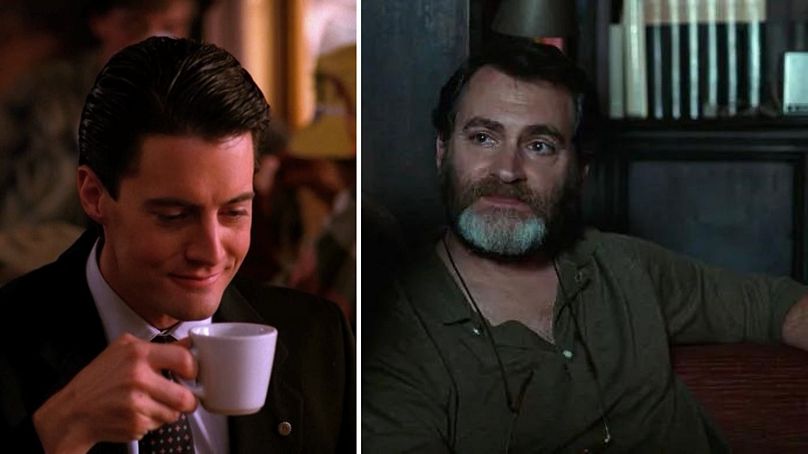This week, a young boy saved a drowning man using a CPR technique he picked up while watching Netflix’s hit show Stranger Things. What other valuable life hacks can be learned from the world of TV and movies?
Don't believe everything you see in movies and on TV, they say.
 ADVERTISEMENT
ADVERTISEMENT
 ADVERTISEMENT
ADVERTISEMENT
Well, eat a massive concrete mixer of humble pie, naysayers, as sometimes big and small screens actually can teach you some very valuable life lessons. As evidenced by 12-year-old Austen Macmillan.
This week in Florida, US, the adolescent saved a drowning man using a CPR technique he saw on Netflix’s hit show Stranger Things.
Austen’s registered behaviour technician, 30-year-old Jason Piquette – who followed Austen for applied behaviour analysis therapy – was swimming in the Macmillan swimming pool as part of their hours of work together. As they swam, Piquette held his breath under water for too long and slipped into unconsciousness. Austen then had the presence of mind to perform chest compressions on Piquette, a technique he later revealed he had picked up while watching Stranger Things – the scene when Jim Hopper and Joyce Byers (David Harbour and Winona Ryder) administer CPR to the young Will Byers (Noah Schnapp).
And it worked. Piquette regained consciousness and was subsequently taken to a hospital, which admitted him into its intensive-care unit, where he was given oxygen overnight.
The story of this little legend got me thinking about all the skills that one can pick up from watching TV shows and going to the cinema.
Granted, not all on-screen claims are accurate or contain vital life lessons. There’s a lot of artistic licence at play, and some tips are not life-saving per se.
After all, Jurassic Park teaches us that electrocution is no biggie; The Exorcist does advise not to mess about with Ouija boards - but no matter how hard I've tried over the years, no Captain Howdy has made his presence known; there aren’t many occasions where the water jug problem in Die Hard With A Vengeance will come in handy; and while Matilda did teach a whole generation of children how to not misspell the word ‘difficulty’ (I still find myself doing the “Mrs. D, Mrs. I, Mrs. FFI, Mrs. C, Mrs. U, Mrs. LTY!” to this day), no lives were at stake.
Scratch that, The Trunchbull is terrifying, so vital organs may have been in jeopardy.
Below are the essential life hacks that I’ve learned from TV and movies over the years – the ones that work, are faultless, and can be applied to day-to-day life to really make a difference.
How to properly administer CPR – As seen in: The Office and 'Titane'
When you watch films or TV shows, received wisdom seems to be that CPR always works and saves people quite quickly. That’s not always the case, and you don’t just wake up and resume your previous conversation after just a few chest compressions. It can last up to 20 minutes for it to work.
Austen may have learned CPR from Stranger Things, but older TV buffs might remember the US version of The Office teaching them how to revive someone. Michael Scott (Steve Carell) sings the Bee Gees’ ‘Stayin’ Alive’ while practicing on a dummy – and he was spot on.
The right way to perform CPR is to do 30 chest compressions followed by two breaths – all at 100-120 compressions / beats per minute. Songs like ‘Stayin’ Alive’ fit the bill, as does Los Del Rio’s 'Macarena', as seen in Julia Ducournau’s mind-meltingly brilliant Cannes winner Titane.
Vincent Lindon’s fire fighter (also named Vincent) teaches his “son” Adrien (Agathe Rousselle) to revive someone to the tune of the 1993 rumba flamenco tune.
Ever since, I can’t think about the dance moves anymore – I'm doing imaginary compressions.
How to defend yourself in case of an attack – As seen in: 'Miss Congeniality'
Laugh all you want, but Sandra Bullock’s undercover FBI agent Grace Hart has some skills worth committing to memory. She even has a handy acronym for an accurate tactic if assaulted: S.I.N.G.
That stands for: Solar plexus, Instep, Nose, Groin.
In that order.
Follow those steps and you’ll maximize your chances of getting away from an attacker unscathed.
How to avoid a lawsuit – As seen in: 'Spider-Man'
Sam Raimi’s 2002 Spider-Man sees publishing head honcho and Peter Parker’s boss J. Jonah Jameson (J.K. Simmons) dropping some knowledge.
“Slander is spoken. In print, it’s libel.”
He’s probably well-versed in both, but that doesn’t stop him from being correct.
How to make the perfect pasta sauce – Pt. 1 – As seen in: 'Goodfellas'
Sure, there are better people to take advice from than imprisoned mafia bosses, but that doesn’t mean they don’t speak some sense from time to time. Especially when it comes to dishing out advice about the perfect pasta sauce.
Without the use of kitchen knives – rightly considered contraband in prison – Pauli (Paul Sorvino) manages to slice the garlic as thinly as possible using a razor blade. The trick is to get the slices of bulbous goodness as lean as possible so it liquifies in the oil-filled pan.
I’m personally a fan of chunkier slices, but having tested this method (minus the use of a razor blade, I’m ashamed to say), it works and tastes great. But then again, the more garlic, the better.
How to make the perfect pasta sauce – Pt. 2 – As seen in: 'The Godfather'
Sticking with Italian crime... And this one, I swear by.
While the Goodfellas garlic slices are a bit too willowy for my liking, once you’ve discovered the life hack gifted by The Godfather, you won’t want to go back.
Clemenza (Richard Castellano) instructs Michael Corleone how to make proper spaghetti sauce: "Heh, come over here, kid, learn something. You never know, you might have to cook for 20 guys someday. You see, you start out with a little bit of oil. Then you fry some garlic. Then you throw in some tomatoes, tomato paste, you fry it; ya make sure it doesn't stick. You get it to a boil; you shove in all your sausage and your meatballs; and a little bit o' wine. An' a little bit o' sugar, and that's my trick."
A quarter cup should suffice, and that extra dash of sugar makes the world of difference.
Oh, and while we’re on pasta, if I’ve learned anything about food in film, it’s that contrary to popular belief, spaghetti facilitates makeouts. Yes, it’s a messy foodstuff at times, but if it worked for Lady and the Tramp, then what more proof do you need?
How to not seem uncouth at a fancy meal – As seen in: 'Titanic'
Continuing with the food theme, we come to table manners, which can be tricky – especially when you’re at a fancy spread or a formal dinner.
Thank the stars for Kathy Bates in Titanic.
When Jack (Leonardo DiCaprio) appears confused at the layout of the silverware and which fork to use during his first experience in first-class dining, Molly Brown (Bates) helpfully guides him so he doesn’t make any faux pas in front of the snooty guests.
She sums up fork etiquette beautifully and calls out the inherent ridiculousness of needlessly intricate posh presentation: “Just start from the outside and work your way in.”
How to not dry your face with aftershave – As seen in: 'American Psycho'
Again, there are better role models, but you get good advice where you can take it.
Before we see our titular psycho Patrick Bateman (Christian Bale) go on a murderous bloody rampage (or did he?), we witness his daily workout and pampering routine early on in the film.
It’s during his skin care routine that he imparts rather vital knowledge: keep your face fresh by using alcohol-free aftershave, as the alcohol dries the skin and isn’t all that great out your pores. It’s worth keeping in mind... That and having a good moisturiser if you can’t find your favourite scent sans alcohol.
How to impress family and loved ones with your knowledge of the Gregorian calendar – As seen in: 'RENT'
The film adaptation of the musical RENT also features the hit song ‘Seasons of Love’, a barnstormer of a number that teaches you that there are 525,600 minutes in a year.
A good bit of trivia that should come in handy if you’re ever looking to profess your love to someone and tell them how much you think about them... Or if you’re seeking to psychologically tear down someone by telling them that there are 525,600 minutes in a (non-leap) calendar year and that you don’t wish to waste a single precious one engaging in conversation with them.
Your pick.
How to make fire with the bare essentials – As seen in: Orange Is The New Black
Need a light, or desperate for some fire in a tight spot?
Well, if you’d been watching the Netflix prison comedy-drama based on Piper Kerman’s memoir, you’d know that all you need is a chewing-gum wrapper and a battery.
It’s called the Litchfield Lighter.
You take a battery and a folded wrapper that is pinched in the middle. Then touch the ends to the ends of the battery. The foil side ignites the paper side and you’ve got yourself a flame.
Science, b*tches!
How to get rid of ink stains – As seen in: Full House
The 80 / 90s American sitcom Full House was essentially an updated version of The Brady Bunch and never a huge critical success.
However, in Season 4, lead character Danny (Bob Saget) dates Cindy (Debra Sandlund), who teaches him a trick that will help anyone battling an ink stain: hairspray removes ink blotches.
It’s a neat hack for all you would-be domestic gods and goddesses, and it actually works.
How to repair a malfunctioning watch – As seen in: 'Alice in Wonderland'
Butter.
Use butter.
And if that doesn’t work, try tea.
Jam is next.
Just don’t go for mustard - "That’s just silly!"
Other neat hacks found in Disney / Pixar films: Starfish keep your nipples nice and moisturized (The Little Mermaid); beware of dodgy uncles (The Lion King); rodents make for wonderful sous-chefs - and don’t skimp on the herbs (Ratatouille); and Marie Kondo can suck it – clutter is brilliant (Wall-E).
How to improve your mental health - As seen in: Countless film
Movies and TV shows, as we have learned, don’t just entertain – they also teach.
There are some inspirational quotes from various films that can genuinely be eye-opening and help with day-to-day struggles. More than that, it’s not overselling anything to state that some cinema-imparted wisdom can be life-changing, altering the way you see life and yourself, and actually help with mental health.
From The Breakfast Club (“Spend a little more time trying to do something with yourself and a little less time trying to impress people”) and Dead Poet’s Society (“Carpe Diem. Seize the day. Make your lives extraordinary”) to The Perks of Being a Wallflower (“We accept the love we think we deserve”), some lines can strike a chord.
These next three are standouts for me.
The first is an important lesson for all those trying to make it in the current economy: “If you’re good at something, never do it for free,” said by the Joker in Christopher Nolan’s The Dark Knight.
Sometimes anarchy-loving rogues have gold to impart - especially if you're faced with unscrupulous and stingy bosses.
The second is less prosaic yet equally wise. It also continues to bring tears to my eyes every time I hear or read it:
“We rip out so much of ourselves to be cured of things faster than we should that we go bankrupt by the age of thirty and have less to offer each time we start with someone new. But to make yourself feel nothing so as not to feel anything, what a waste! (…) Our hearts and our bodies are given to us only once. And before you know it, your heart’s worn out, and, as for your body, there comes a point when no one looks at it, much less wants to come near it. Right now, there’s sorrow, pain. Don’t kill it, and with it the joy you’ve felt.”
Beautiful words from Elio’s dad (Michael Stuhlbarg), speaking to his son on the merits of not dismissing present pain, in Call Me By Your Name – Luca Guadagnino’s stunning film, adapted from André Aciman’s equally moving novel.
And the third is from David Lynch and Mark Frost’s seminal TV show Twin Peaks, which sees Agent Dale Cooper (Kyle MacLachlan) deliver a line for the ages: “Every day, once a day, give yourself a present. Don't plan it. Don't wait for it. Just let it happen. It could be a new shirt at the men's store, a catnap in your office chair, or two cups of good, hot black coffee.”
Sounds silly, but think about it, and how much self-care we deny ourselves on a daily basis.
And they called TV the “idiot box”...















